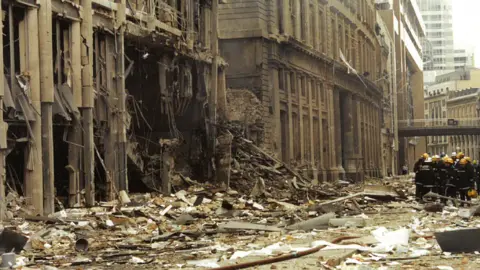When arriving in London, I stepped outside to smell the (not so) fresh London air after being cramped on a stuffy plane for over seven hours. What was most apparent to me was the immediate smell of cigarette smoke. I am not sure what I expected, but it definitely was not that. As I commuted by train to my hotel and walked through Kensington, the suburb we had stayed, I noticed it was not a one-off event. I was in the minority for not smoking cigarettes. I had gone on this trip with the expectation that France was a heavy smoking country, but did not realize the hobby was multi-national and, overall, is relatively popular in Europe. Though the smoking habits of London were jarring, what was more peculiar was the lack of access to public trash cans, or bins, as they are called. As a result, people are forced to carry their trash with them as they venture through the city, most unwilling to do so, which guided my attention elsewhere: litter.
Cigarette butts pepper the streets and sidewalks of London. Beer cans are left in the strangest places. I found one lonesome and crushed in one of many of the iconic red phone booths of London. I tried to find a trash can for it with no luck, going as far to ask one of the city workers: their trashcan was not for public use. Street sweepers made rounds daily throughout the city. At night, “litter pickers” emerged to rid the streets of stray trash. Scot Zweer, a street cleaner in Central London, describes what the job takes: “You will be moving some bags and you will find people’s faeces or vomit. The smell is sometimes so bad. I’m quite squeamish. It’s eye-watering.” All this work seemed counterintuitive and more expensive than providing public trash cans, so why?

Street sweeper outside of Westminster Abbey. Credit: Sam Chancey
London has an extensive history of bombing- one that transcends World War I and II. The bombings in London began with the Fenian Bombing Campaign in 1881. Fenian was a term used to describe someone part of the Irish Republican Brotherhood (Now known as the Irish Republican Army) and those involved used terror attacks to “coerce” their independence from Britain. London would later suffer eight straight months of bombing through the Blitz at the hands of the German Luftwaffe. London has been the target of a century and a half of bombardments committed by the IRA and, in later years, by Islamic extremist terrorists. Following the 1993 bombing of Bishopsgate, all public trash cans were removed as they were primary targets to hide bombs. In 1998, a peace deal was made to end the Troubles in Northern Ireland. Since, London is slowly reintroducing public trash cans, though they are still few and far between.

The aftermath of the bombing at Bishopsgate. Credit: City of London Police.
https://en.wikipedia.org/wiki/List_of_terrorist_incidents_in_London
https://www.mylondon.news/news/zone-1-news/why-arent-enough-bins-certain-16839886
https://www.bbc.com/news/uk-england-london-43878479
https://www.mylondon.news/news/zone-1-news/cleaning-up-londons-streets-grim-21872527